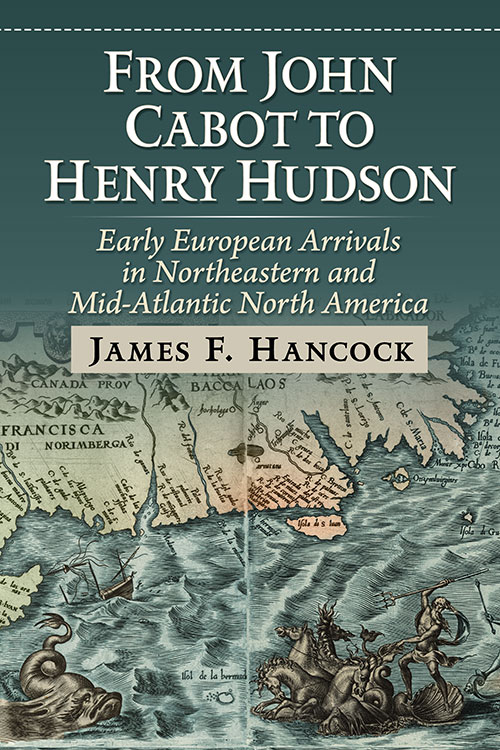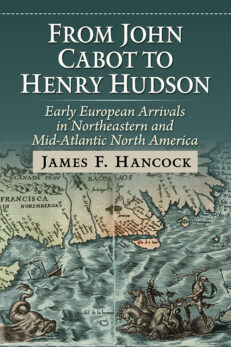From John Cabot to Henry Hudson
Early European Arrivals in Northeastern and Mid-Atlantic North America
$39.95
Available for preorder/backorder
About the Book
The history of how North Atlantic America was revealed to the Europeans in the 16th and early 17th centuries is largely forgotten. This book seeks to remedy that, describing the English, French and Dutch expeditions to North America before the Pilgrims arrived at Plymouth Rock. Drawing extensively on firsthand accounts of explorers, this history spans the precolonial period from John Cabot’s discovery of Newfoundland in 1497 to the founding of Jamestown in 1607.
The French and English expeditions into the North Atlantic searching for cod, gold, and a route to China came first, followed by Jaques Cartier’s and other French fur trading activities in the St. Lawrence River Valley, and then a series of French and English expeditions along the New England coast in pursuit of cod and furs. The pre-colonial period would end after Henry Hudson’s exploits in New York Harbor and Hudson Bay. Central to the story of European discovery was their contacts with the dense populations of Indigenous people and the effect their presence had on tribal cultures. What generally began as friendly interactions almost always turned ugly as the Europeans pushed for land, and their diseases raced through the native people. This exhaustively researched book presents many such events from an understudied period of European exploration.
About the Author(s)
Bibliographic Details
James F. Hancock
Format: softcover (6 x 9)
Pages:
Bibliographic Info: ca. 10 photos, bibliography, index
Copyright Date: 2024
pISBN: 978-1-4766-9577-8
eISBN: 978-1-4766-5492-8
Imprint: McFarland





